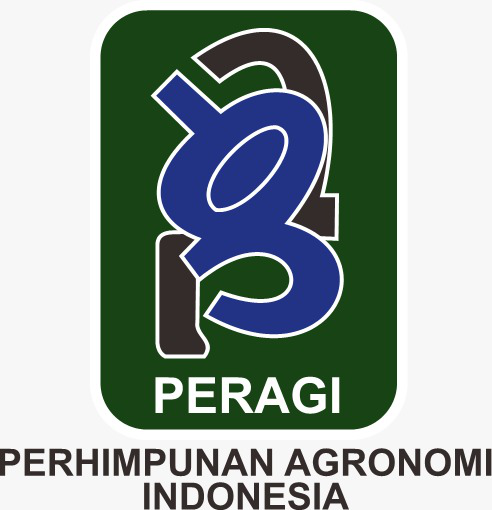Analysis of Several Chemical Properties during The Incubation Period in the Agrotechnology Cultivation Land of Rantau Selatan District
Abstract
Land management practices primarily influence soil fertility. The utilization of farmer group land at Agrowisata Beken Jaya in Kuantan Senggigi Regency has been ongoing for seven years, employing both inorganic and organic fertilization techniques that are inconsistent or tailored to specific conditions. Therefore, it is essential to assess the soil's current state and chemical properties to promote sustainable agriculture. This study employed a purposive random sampling method for soil collection at 15 drilling points, each at a depth of 20 cm. The parameters analyzed included pH, organic carbon (C-organic), total nitrogen (N-total), and the carbon-to-nitrogen (C/N) ratio. The research findings indicate that oil palm soil exhibits lower pH, organic carbon, and total nitrogen levels than shrub soil, with an average pH of 4.44 versus 4.63, C-organic 0.96% versus 1.19%, and N-total 1.05% versus 1.18%. The low C/N ratio (<10) observed in both soil types suggests rapid decomposition but indicates a low carbon content. This study aimed to determine the chemical characteristics of the soil in cultivated land, providing a foundation for future fertilization recommendations. The findings are particularly beneficial for the community and students, as they enhance understanding of the current state of soil fertility—reason: Improved clarity, vocabulary, and technical accuracy while maintaining the original meaning.
Downloads
References
Bintuni, T. (2023). Sebagai upaya mendukung rehabilitasi hutan dan lahan (Assessment of peatland properties in Teluk Bintuni District for underpinning land and forest rehabilitation). Jurnal Kehutanan Papuasia, 9(1), 79–87.
Dirra, D. P. (2022). Kajian aktivitas mikroorganisme pada beberapa tipe penggunaan lahan di Nagari Kapalo Hilalang Kecamatan 2x11 Kayu Tanam. Universitas Andalas.
Ginting, S., Leomo, S., & Rustam, O. D. E. (2023). Status C-organik dan kadar N-total pada lahan pengembangan kelapa sawit di Wawolahumbuti Kecamatan Pondidaha Kabupaten Konawe. 03(02), 103–109.
Haitami, A., & Wahyudi, W. (2019). Pengaruh berbagai dosis pupuk kompos tandan kosong kelapa sawit plus (Kotakplus) dalam memperbaiki sifat kimia tanah Ultisol. Jurnal Ilmiah Pertanian, 16(1), 56–63. https://doi.org/10.31849/jip.v16i1.2351
Harahap, F. S., Oesman, R., Fadhillah, W., & Nasution, A. P. (2021). Penentuan bulk density Ultisol di lahan praktek terbuka Universitas Labuhanbatu. Agrovital: Jurnal Ilmu Pertanian, 6(2), 56. https://doi.org/10.35329/agrovital.v6i2.1913
Kusuma, C. A., Wicaksono, K. S., & Prasetya, B. (2016). Perbaikan sifat fisik dan kimia tanah lempung berpasir melalui aplikasi bakteri Lactobacillus fermentum. Jurnal Tanah dan Sumberdaya Lahan, 3(2), 401–410.
Lubis, A. M. S., Fitra, H. S., Kamsia, S. D., & Hilwa, W. (2024). Evaluation of soil fertility status on oil palm cultivation land (Elaeis guineensis Jacq.) in Pulo Padang Village. Jurnal Agronomi Tanaman Tropika (JUATIKA, 6(2). https://doi.org/10.36378/juatika.v6i2.3592
Pratiwi, T. D., Niswati, A., Arif, M. A. S., & Buchari, H. (2013). Pengaruh pengolahan tanah dan pemberian mulsa bagas terhadap kandungan biomassa karbon mikroorganisme (C-Mik) tanah pada lahan pertanaman tebu tahun kedua. Jurnal Agrotek Tropika, 1(3), 346–351. https://doi.org/10.23960/jat.v1i3.2063
Rahmadhani, P., Aryanti, E., & Suryani, P. (2024). Analisis kimia tanah pada perkebunan kelapa sawit (Elaeis guineensis Jacq.) yang telah berusia 26 tahun di PTPN V Desa Tandun Kabupaten Rokan Hulu. Seminar Nasional Integrasi Pertanian dan Peternakan, 2(1), 47–58. https://semnasfpp.uin-suska.ac.id/index.php/snipp
Risky Amelia. (2016). Dampak perubahan iklim terhadap ekosistem. Rumah Belajar, 328(2003), 1523–1529.
Rosalina, F., & Maipauw, N. J. (2019). Sifat kimia tanah pada beberapa tipe vegetasi. Median, 11(1), 1–9.
Sari, D. N. I. (2020). Perancangan pusat penelitian dan pengembangan tanaman sayuran di Poncokusumo dengan pendekatan arsitektur ekologis. Skripsi, 1–168.
Siregar, P., Fauzi, & Suproadi. (2017). Pengaruh pemberian beberapa sumber bahan organik dan masa inkubasi terhadap beberapa aspek kimia kesuburan tanah Ultisol. Jurnal Agroekoteknologi Universitas Sumatera Utara, 5(2), 256–264.
Syahrul, Thaha, A. R., & Toana, M. R. C. (2021). Analisis beberapa sifat kimia tanah pada berbagai tipe penggunaan lahan di Desa Tolai Barat Kecamatan Torue Kabupaten Parigi Moutong. Agrotekbis: E-Jurnal Ilmu Pertanian, 9(5), 1287–1297.
Tewu, R. W. G., Theffie, K. L., & Pioh, D. D. (2016). Kajian sifat fisik dan kimia tanah pada tanah berpasir di Desa Noongan Kecamatan Langowan Barat. Cocos, 7(2), 1–8.
Tm Alfarizi, & Munawar Khalil, Y. (2023). Kajian stok karbon organik dan nitrogen total tanah pada beberapa jenis tanaman penutup tanah di kebun kelapa sawit PT Perkebunan Nusantara I Kota Langsa. TM, 16(2), 194–203.
Walida, H., Harahap, F. S., Ritongah, Z., Yani, P., & Yana, R. F. (2020). Evaluasi status hara bahan organik terhadap sifat kimia tanah di lahan miring kelapa sawit. Ziraa’ah Majalah Ilmiah Pertanian, 45(3), 234. https://doi.org/10.31602/zmip.v45i3.3429
Copyright (c) 2025 Hafis Maulana Azhari Siregar, Harahap Fitra Syawal, Walida Hilwa, Sepriani Yusmaidar

This work is licensed under a Creative Commons Attribution 4.0 International License.
Authors who publish with Jurnal Agronomi Tanaman Tropika (JUATIKA) agree to the following terms:
Authors retain copyright and grant the Jurnal Agronomi Tanaman Tropika (JUATIKA) right of first publication with the work simultaneously licensed under a Creative Commons Attribution License (CC BY 4.0) that allows others to share (copy and redistribute the material in any medium or format) and adapt (remix, transform, and build upon the material for any purpose, even commercially) with an acknowledgment of the work's authorship and initial publication in Jurnal Agronomi Tanaman Tropika (JUATIKA).
Authors are able to enter into separate, additional contractual arrangements for the non-exclusive distribution of the journal's published version of the work (e.g., post it to an institutional repository or publish it in a book), with an acknowledgment of its initial publication in Jurnal Agronomi Tanaman Tropika (JUATIKA). Authors are permitted and encouraged to post their work online (e.g., in institutional repositories or on their website) prior to and during the submission process, as it can lead to productive exchanges, as well as earlier and greater citation of published work.







 More Information
More Information



